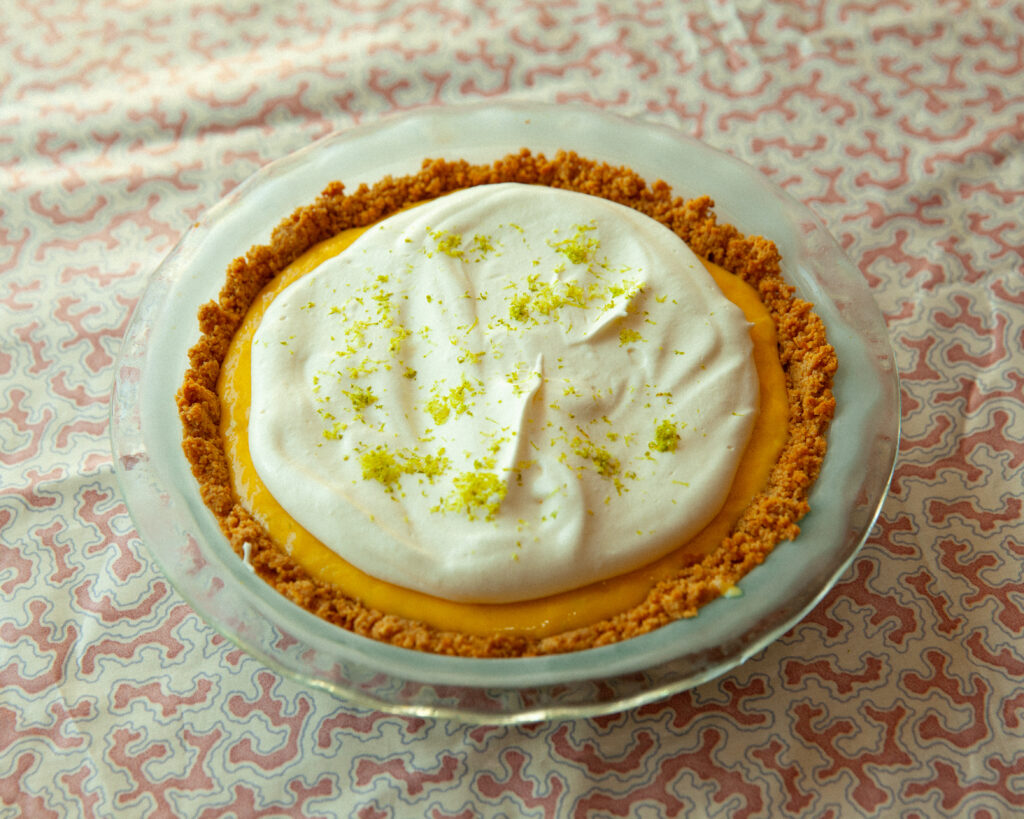Photograph by Erica MacLean.
I am a baker of pies and a believer in pleasures, but also the kind of killjoy who can’t take a rom-com in the spirit it’s intended. Hence my fraught relationship with Heartburn by Nora Ephron. I remember—from 1983, the year the book was published—it being marketed as a “hilarious” comedy about a woman cooking her way out of a broken heart at the end of a marriage. Heartburn was a cultural sensation in the suburbs of my youth, such that I recall my mother cackling over the film adaptation and criticizing Meryl Streep’s looks—not pretty enough! The story was said to be inspired by Ephron’s divorce from Carl Bernstein and has always been considered a delicious revenge plot by a spurned woman upon a cheating man.
Ephron had a dazzling career as a trailblazer for women in journalism, and she wrote many of the greatest movies of all time, including When Harry Met Sally. She was a master, so my cavils over Heartburn‘s myths about romance will be brief: I don’t think a woman who stays in a bad relationship is just a starry-eyed believer in true love, as the heroine, Rachel Samstat, is presented to be. Nor do I think that men are just dogs—which is the book’s explanation for her husband, Mark Feldman’s, behavior—or that the happiest ending is finding a new relationship. But Ephron, in Heartburn, wasn’t looking to soul-search—this was her revenge novel. At one point, Rachel, who is a food columnist, admits to her therapist that she tells stories about her life in order to “control” the narrative. Ephron, writing Heartburn, was controlling the narrative of her divorce while showing off her wit, and she did it wonderfully. The one-liners never cease, as when Rachel says that Mark celebrates the political dysfunction of Washington, D.C., because if the city worked, “something might actually be accomplished and then we’d really be in bad shape” and adds, “This is a very clever way of being cynical, but never mind.”
Ephron describes linguine alla cecca as a “hot pasta with a cold tomato and basil sauce” that’s “so light and delicate that it’s almost like eating a salad.” Photograph by Erica MacLean.








